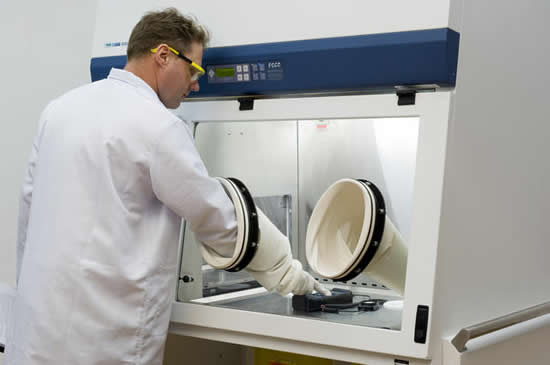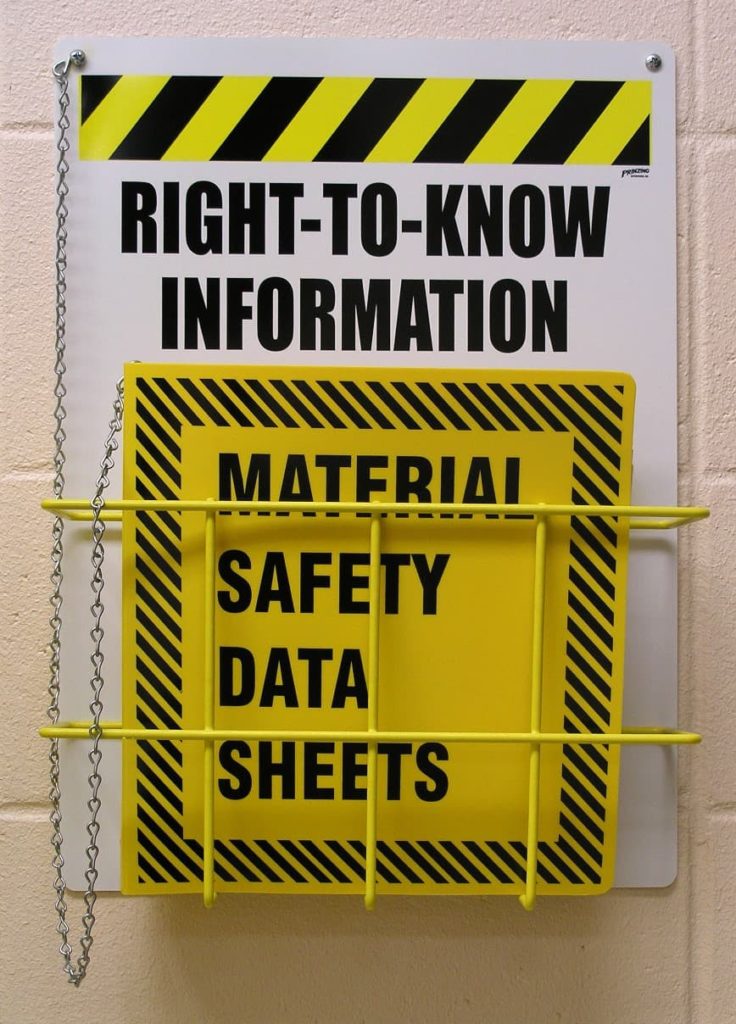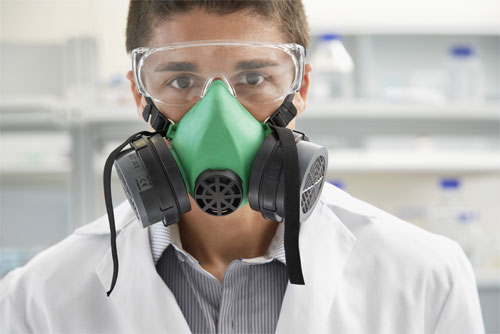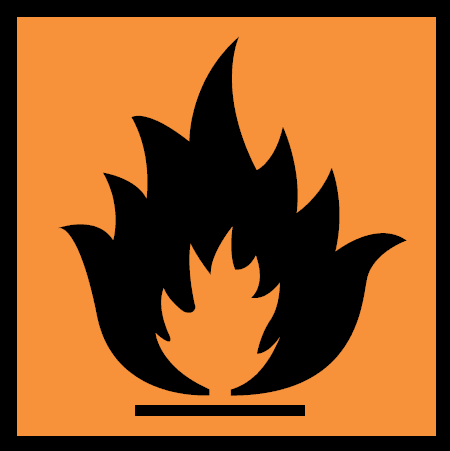Handling and Disposal of Special Materials in Medical Laboratories and Hospitals


Medical laboratories and hospitals consume materials having potential hazards such as microbiological bacteria, corrosive chemicals, compressed gases,and flammable solvents, etc. Safe handling and disposal practices for such materials are adequately covered in common guidelines. However, besides such products potentially hazardous materials are often handled in such premises which include radioactive isotopes, cytotoxic materials, mutagens and teratogens. Such materials require specialized handling and disposal practices as they are often carcinogenic or cause untold damage over a period of time. The harm is not restricted to the laboratory worker but can even be passed on to future generations. In this article the hazard aspects of such materials are emphasized and their handling and storage are dealt with to some extent.
Cytotoxic Pharmaceuticals
Cytotoxic drugs are used to treat cancers. They are toxic to cells as they prevent growth and replication. Exposure to such materials can result from drug manufacture and administration, transport and waste disposal or handling of materials spills. Exposure routes are skin absorption and aerosol inhalation.The hazards commonly associated with such materials are contact dermatitis resulting in allergies, abdominal pain, nasal sores and vomiting and even foetal loss in pregnant women.
Mutagens
Mutagens are agents that have the ability to alter the DNA of organisms. They can increase the mutation or division of cells and can induce cancerous growth in normal cells. Common materials that fall into this class are polyaromatic hydrocarbons, benzene, aromatic amines, organometallics,etc.
Radioactive Isotopes
Radioactive isotopes find use in medical laboratories and hospitals for certain malignant growth treatments and primarily inside diagnostic equipments such as gas chromatographs,CT and MRI scanners, ultrasound and mammographs.
Radiation from radioactive sources has potential to kill cells and damage the DNA structure leading to cancer. It is important for laboratory technicians working with radioisotopes to use protective shields to prevent exposure.
Radioactive waste needs to be segregated from other chemical waste and disposed off in specially marked tough plastic containers taking care to not mixup disposed solid wastes, liquid wastes,disposed vials and other sharps such as blades, needles and broken glass.
Equipments with embedded isotopes and which are out of use for 2 years or more should not be disposed as routine scrap and help of specialized disposal agencies should be taken.
Teratogens
A teratogen can inhibit growth of embryo or foetus that can lead to a birth defect and even still birth. Consumption or exposure to teratogenic drugs or materials should be avoided by pregnant women. Consumption of alcohol should also be avoided during pregnancy and tetracycline based antibiotics should be avoided. Retionic acid or vitamin A derivatives also exhibit teratogenicity. Other drugs such as benzaepril,enalpril etc should also be avoided by pregnant women.
Handling Precautions
- Use protective washable clothing that leaves no body part exposed
- Availability of wash facilities in event of exposure
- Use of isolators or biosafety cabinets for carrying out handling and weighing of such materials
- Storage should be in isolated areas with authorised access only
- Spills should be attended on priority by trained personnel
- Storage containers should be checked for freedom from damage and leaks before storage
Disposal
- Material of each category should be stored in segregated bins
- Persons handling material for disposal should also wear protective clothing and respirators
- Before disposal treat with 5% percent sodium hypochlorite or 10 % sodium hydroxide for disinfection
- Waste should be sent for incineration before final disposal through the waste disposal agency.





Responses